Core Virtues
Great Hearts’ Core Purpose is “to cultivate the minds and hearts of our students in the pursuit of truth, goodness, and beauty.” We believe that it is not enough for a school to merely educate the mind of its students; we believe that authentic education involves the whole person—mind, body, and heart. In partnership with parents, it is not only the privilege but the duty of our teachers to cultivate in our scholars knowledge and intellectual excellence, of course, but also bodily excellence, and—perhaps most importantly—moral excellence.
Great Hearts does not employ an explicit “character curriculum.” Instead, conversations about moral choices, virtue, and vice are woven throughout our curriculum and integrated organically and holistically into our instruction, conversations about student behavior, and, indeed, our entire school day.
Great Hearts has chosen nine core virtues from the classical tradition which are particularly useful in facilitating conversations about moral excellence with young children. Each virtue is displayed in our classrooms and referenced frequently during class discussions of characters in our “Classics to Keep” books, figures in history, and our students’ choices and actions as well. From time to time we may communicate with parents about a particular virtue that their child displayed during the course of the day, or perhaps one which the scholar struggled to show. We encourage all our families to continue the conversation about virtue at home.
You can find more on each virtue and how it is incorporated into our instruction below.

Citizenship
Students at Great Hearts have many opportunities to embody the virtue of citizenship. Picking up a piece of litter helps keep the school clean and beautiful for every one of our students; raising a hand quietly rather than calling out an answer helps make a student’s classroom a more peaceful place for all.
Read More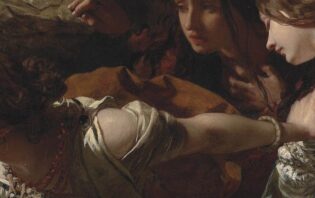
Courage
It may seem that courage is not a virtue that would often be demanded of a child in school, but, while the courage we see our students display day-to-day is certainly of a different measure than that shown by a great heroine or mighty warrior, it is courage nonetheless.
Read More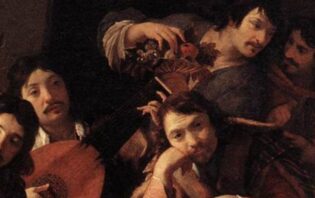
Friendship
Great Hearts scholars show the virtue of friendship by helping a classmate pick up a dropped pencil, by holding the door for the person behind them, or by being happy to play with anyone at recess. All scholars are expected to show friendship to others at all times. Kindness, generosity, seeking after what is good for those around us, and treating one another with respect permeate the culture of our classrooms and our school.
Read More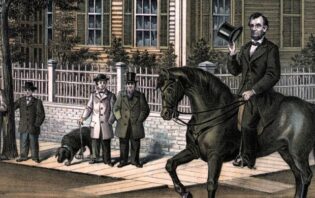
Honesty
While practicing law, Abraham Lincoln famously said, “Resolve to be honest at all events; and if in your own judgment you cannot be an honest lawyer, resolve to be honest without being a lawyer.” This mindset earned Lincoln the nickname ‘Honest Abe,’ which stuck with him throughout his legal and political career.
Read More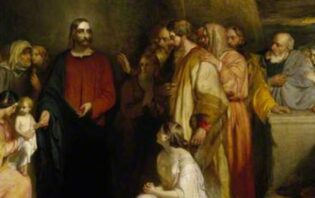
Humility
Humility is crucial to everything from sportsmanship to magnanimity. As students grow in their understanding of what it means to be humble, they begin to instinctively show kindness to their teammates during games and to take due pride in their accomplishments regardless of whether they finished before or after their classmates.
Read More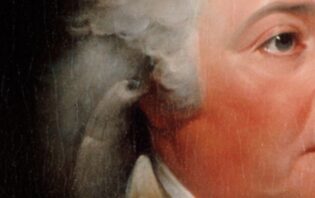
Integrity
At Great Hearts, students have the opportunity to show integrity when they make good choices even when no one is watching. In the bathroom, on the playground, or even when the teacher has gone around a corner in the hallway, students can show integrity by following their conscience and meeting the expectations of a scholar, whether they might be able to “get away with it” or not.
Read More
Perseverance
Sometimes even a single word problem in Singapore Math may demand much patience, diligence, and perseverance on the part of a scholar. It is good for children to do hard things, and it is good for them to experience natural challenges and setbacks along the way—and overcome them.
Read More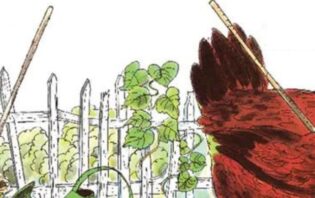
Responsibility
One day, the Little Red Hen decides to plant some wheat. After that the wheat must be cut, then taken to the mill, and finally baked into a cake. The Little Red Hen asks the others to help with each task, but each time they refuse. Very soon the cat, the dog, and the mouse learn that when we do not act responsibly and contribute, the rewards in life are fewer.
Read More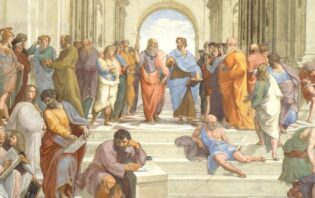
Wisdom
In the Second Grade at Great Hearts, students learn about the birth of philosophy in Ancient Greece and the teaching of Socrates, Plato, and Aristotle that the noblest undertaking of mankind is the pursuit of wisdom.
Read More